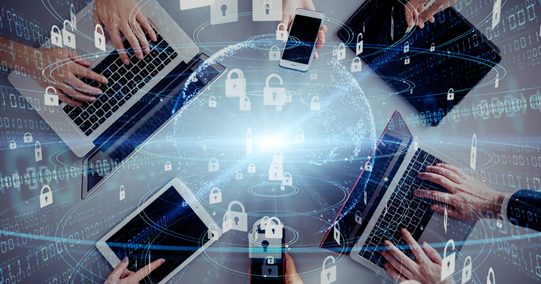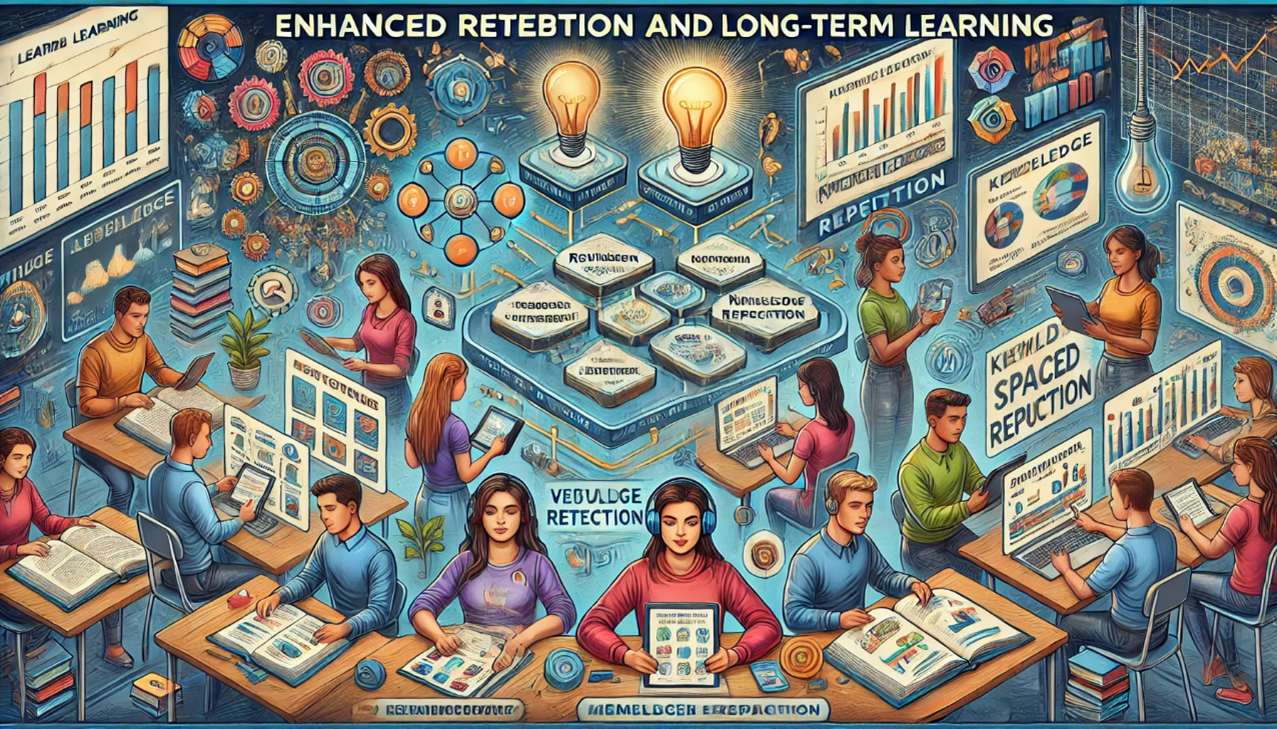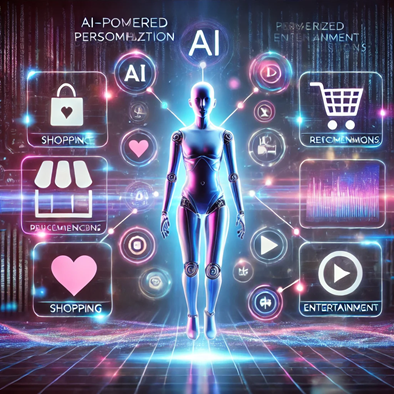Can blockchain improve the transparency and trustworthiness of AI algorithms?

Can blockchain improve the transparency and trustworthiness of AI algorithms?
by Nathaniel 04:20pm Jan 27, 2025
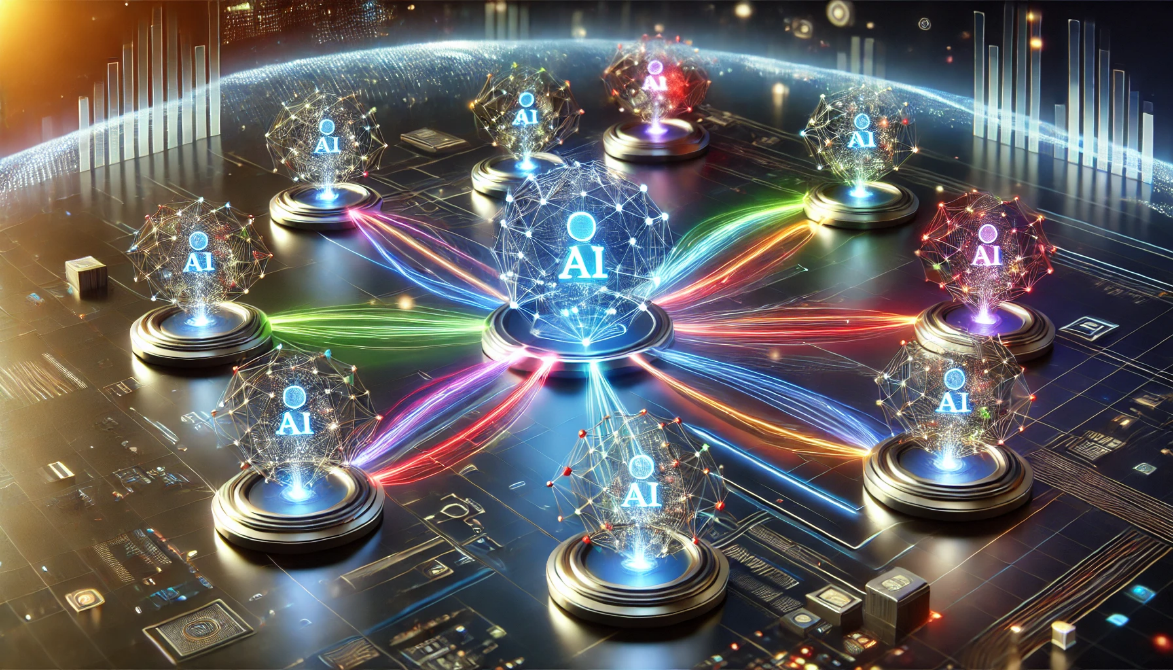
Can blockchain improve the transparency and trustworthiness of AI algorithms?
Yes, blockchain can significantly improve the transparency and trustworthiness of AI algorithms, addressing some of the key challenges related to the black-box nature of AI, accountability, and bias. By integrating blockchain with AI, organizations can create more transparent, auditable, and verifiable AI models, which enhances both trust and reliability. Here’s how blockchain can improve the transparency and trustworthiness of AI algorithms:
1. Transparent Model Development and Training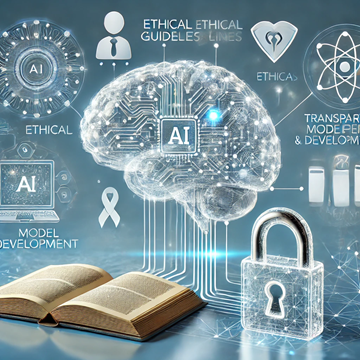
One of the primary concerns with AI is that many models operate as “black boxes,” where even the developers might not fully understand how certain decisions are made. This lack of transparency can lead to trust issues, especially when AI is used in high-stakes applications like healthcare, finance, or law enforcement.
Auditability of training data: Blockchain can record every step of the AI development process, including the data used for training, the algorithm applied, and the model's evolution over time. This creates an immutable record that can be audited, ensuring that the AI was trained using verified data and following agreed-upon standards.
Traceability of data and decisions: Blockchain enables full traceability of the data flow, meaning users can track where the data originated, how it was processed, and how it influenced the decision-making of the AI system.This transparency reduces the risk of biased or incorrect data influencing AI outputs.
2. Ensuring Data Integrity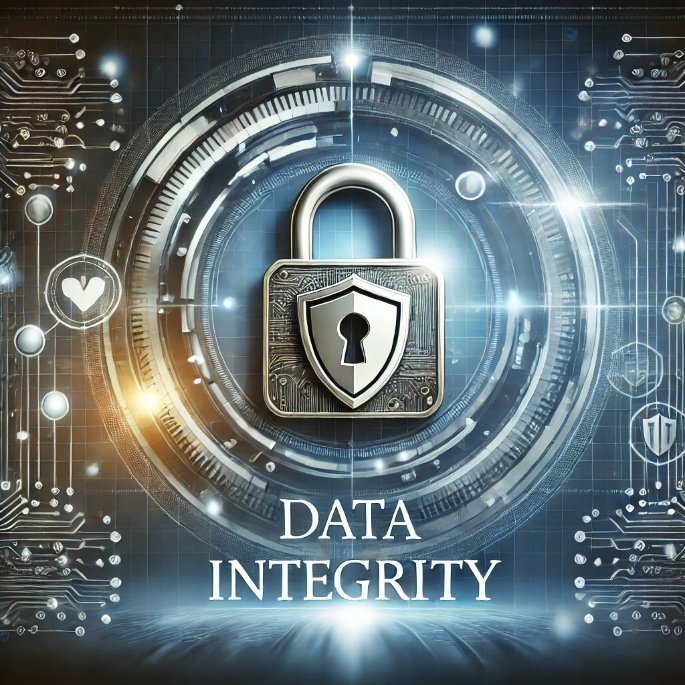
AI systems are heavily reliant on large datasets for training and decision-making. If these datasets are corrupted, incomplete, or biased, it can result in poor or harmful AI decisions.
Immutability of data:By using blockchain to store data, any manipulation or tampering with the dataset can be detected, as blockchain ensures the integrity of stored information. This makes it more difficult for malicious actors to alter training data, which directly impacts the trustworthiness of AI systems.
Decentralized control of data: Blockchain can allow data to be shared across different stakeholders (such as data providers, researchers, or developers) while maintaining control and access permissions. This decentralization prevents any single party from controlling or altering data in a way that could lead to bias in AI algorithms.
3. Transparent Algorithm and Model Audits
AI algorithms are often proprietary, and understanding how they work can be difficult, especially in complex deep learning models. This can lead to a lack of accountability in the event of an error or harmful decision.
Publicly accessible code: Blockchain can enable the creation of decentralized, transparent, and immutable records of AI model code and updates.Researchers and other stakeholders can verify the algorithm's structure,updates, and modifications in a transparent manner. This fosters accountability, as everyone involved can see what has been changed and why.
Immutable records of model performance: Blockchain can store logs of AI models' performance over time, including how they behave under different scenarios. This creates a historical record that can be audited to ensure that the model is functioning as intended and is free from unintended biases or errors.
4. Mitigating Bias in AI Algorithms
Bias in AI systems is a significant issue, especially when models are trained on unrepresentative or prejudiced data, leading to unfair or discriminatory outcomes. Blockchain can help in tracking and mitigating these biases.
Verification of data sources: Blockchain allows for the verification of the sources of data used to train AI models. By providing a transparent record of where data comes from, it becomes easier to ensure that the data used is diverse, representative, and free from bias. Stakeholders can audit the sources and ensure that biases in the data do not propagate through the model.
Transparent model updates: When AI models are updated to correct bias or improve performance, these updates can be tracked on a blockchain. This provides a verifiable history of the model's evolution, ensuring that any attempts to mitigate bias are transparent and can be scrutinized.
5. Accountability and Responsibility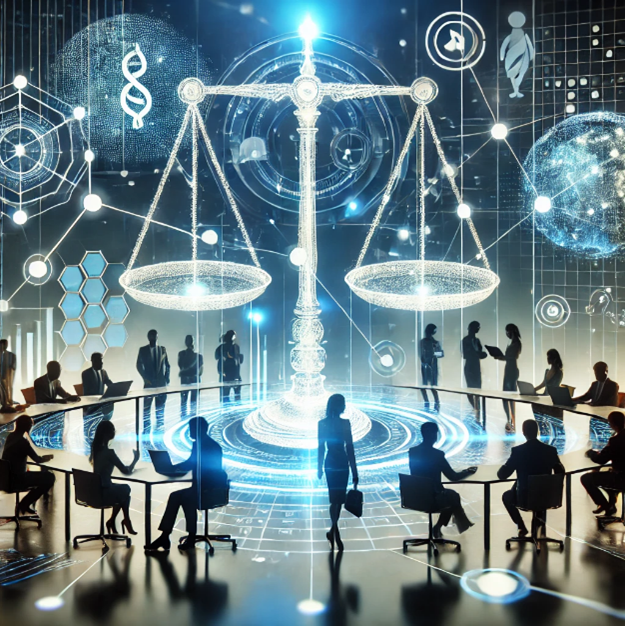
AI's decision-making is often complex and difficult to interpret, which can create challenges when assigning accountability for mistakes or undesirable outcomes. Blockchain can create a verifiable trail of accountability.
Immutable logs of decisions: Blockchain can store detailed logs of decisions made by AI algorithms, allowing stakeholders to review and understand the reasoning behind specific outcomes. In case of errors or disputes, these logs provide an auditable trail to determine what went wrong and who is responsible.
Decentralized governance: Through blockchain, AI development can be governed in a decentralized way, where stakeholders (such as developers, users, or regulatory bodies) can collaborate to ensure the AI system operates ethically and responsibly. Smart contracts can be used to enforce rules around AI usage, updates, and audits, creating clear accountability mechanisms.
6. Enabling Fair and Trustworthy Data Sharing
For AI systems to improve, they often rely on large and diverse datasets, which are typically provided by different stakeholders. Ensuring the integrity and fair use of these datasets is crucial for building trustworthy AI systems.
Decentralized data marketplaces: Blockchain can enable the creation of decentralized data marketplaces where data providers and AI developers can share data in a secure and transparent manner. With blockchain, data contributors can ensure that they are compensated fairly and that their data is used ethically, reducing concerns over exploitation or misuse of personal or sensitive data.
Data provenance:Blockchain allows for the creation of a transparent and immutable record of data provenance, helping to ensure that datasets used to train AI systems are ethically sourced and meet privacy regulations, such as GDPR.Users can verify that data used for training is compliant with regulations and hasn’t been manipulated.
7. Security and Privacy in AI
AI systems that handle sensitive data, such as personal health information, financial data, or private communications, require robust privacy and security mechanisms. Blockchain can play a role in safeguarding these elements.
Decentralized identity management: Blockchain can enhance security by offering decentralized identity management solutions. AI systems can verify identities in a secure and privacy-preserving manner using blockchain’s cryptographic capabilities, ensuring that personal data is handled safely.
Privacy-preserving AI:Blockchain can support privacy-enhancing technologies such as zero-knowledge proofs (ZKPs) or homomorphic encryption, which allow AI models to operate on encrypted data without exposing the raw data itself. This ensures that AI systems can still make accurate predictions or decisions without compromising the privacy of the data involved.
8. Decentralized AI Decision-Making
AI systems can also be decentralized, with decisions being made based on collective inputs from multiple parties.
Smart contracts for decision validation: Blockchain can enable the creation of smart contracts that validate AI decision-making processes. For instance, an AI model might propose a decision, and a decentralized group of stakeholders (e.g., validators) could verify that the decision complies with certain ethical, regulatory, or performance criteria before it is executed. This ensures that AI systems are held to agreed-upon standards and operate transparently.
Conclusion
Blockchain can significantly improve the transparency and trustworthiness of AI algorithms by ensuring data integrity, creating auditable records of AI decisions, enabling decentralized governance, and mitigating issues like bias and accountability. By combining the immutable and transparent features of blockchain with the decision-making capabilities of AI, organizations can build systems that are more accountable, ethical, and trustworthy. This integration allows for greater public trust in AI systems, especially in sensitive applications, and promotes better collaboration and oversight in AI development and deployment.



